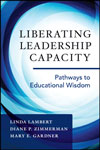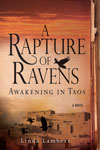« Creative Confluence…what is it? | The Justine Trilogy: the movies! »
The Dangerous Future of a Junior High Boy
There are few places as fertile as junior high schools in which to study arrested development. As a former junior high principal, it is pleasurable to recall those lovely young teenagers who are emerging into adulthood: the quiet, nerdy boys who loved science and technology; the junior athlete; the spirited student leader who always had the next new idea; the dreamy young girl writing poetry on her peachy. It was as though a parade of human development was unfolding before my eyes.
Before I went into education, I was a juvenile probation officer for a couple of years. This is when I first met young boys—and a few girls— who struggled with their own confused identity, who were either arrested in their development, or worse, were hard core enough to grow into adulthood as the same narcissistic bullies they were in junior high.
As a principal, these kids were easy to recognize once again. Fortunately, they were few in number. Never responsible for their own damaging behavior, when conflict occurred, blame was invariably attributed to others. They could do no wrong, nor did they harbor regrets. When asked to apologize, they might say, “He started it first. The teacher is stupid. I’ve got nothing to apologize for.” Later, the claim would become, “I never apologize.”
In public, these boys appeared to feel themselves superior to others. Contemptuous and quick to anger, their talk about others was often arrogant and condescending, contrasting their own relative perfection with the limitations of others. Others are “stupid,” “liars” or “crooked.” Worse yet, the failure of others may be explained by difference: they are girls, Blacks, Latinos, handicapped. In order to maintain their fragile sense of self, these young men consider one form of transaction essential: if you attack me, I must attack you.
Fortunately, as most individuals mature, they learn to rise about the fray, to take the high road, a road that is formed by values and nobler aspirations. But not for these young men, for they have to “even the score” each time. Since they hold grudges, they assume that others do too. These bullies use strength to hurt or intimidate those viewed as inferior or weaker.
Yet at the heart of all of this bravado is fear. Fear of being discovered, fear of not being enough, fear of not being loved. I often looked upon these young boys with compassion, sometimes a sense of failure, questioning: how can I reach him, redirect his life? There is hope. At the age of 12, a sensitive teacher or mentor can find the frightened child beneath and alter his future.
However, if these attributes and fears continue into adulthood, these individuals are not going to change. Further, if one of these men acquires wealth, power and the bully pulpit, he becomes a danger to those around him. Some may fool themselves into thinking his narcissistic outbursts can be moderated and controlled, shaped by history and institutions and law. Think again. The world is in for irretrievable damage.
Leave a Reply





 Conceptions of leadership have evolved, and Liberating Leadership Capacity captures these new ideas and provides a pathway to create sustainable systems of high leadership capacity. Available April 2016 from
Conceptions of leadership have evolved, and Liberating Leadership Capacity captures these new ideas and provides a pathway to create sustainable systems of high leadership capacity. Available April 2016 from  A sizzling new novel set in Taos, New Mexico. The third in the Justine Trilogy, preceded by the award-winning, The Cairo Codex and The Italian Letters. Buy it at your local independent bookstore,
A sizzling new novel set in Taos, New Mexico. The third in the Justine Trilogy, preceded by the award-winning, The Cairo Codex and The Italian Letters. Buy it at your local independent bookstore, 
